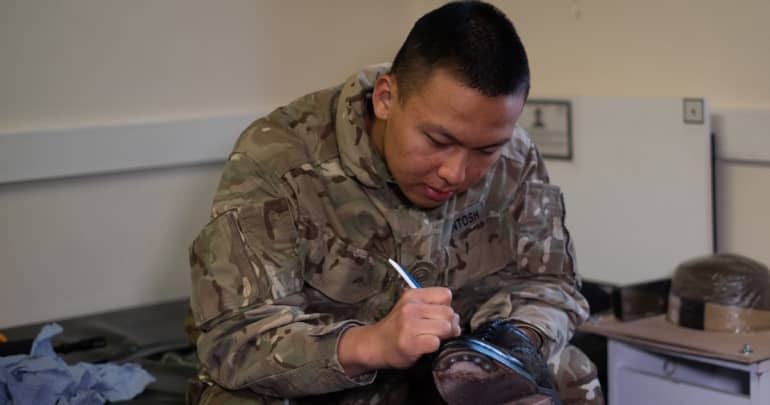Younger veterans face a number of unique challenges, making it difficult to navigate civilian life after being discharged from active duty. With it being difficult to connect to either older veterans or younger peers, many younger veterans can feel isolated in their challenges following their time in service, leading to potentially self-destructive coping strategies. Marijuana use can be one of the most common ways to attempt to process these challenges, trauma, and other complicated stresses. However, marijuana use among younger veterans can have a myriad of dangerous consequences and can develop into an addiction. Fortunately, professional and trauma-informed veteran care at Hawaii Island Recovery can be the first step toward a sober future.
The Stresses Behind Marijuana Use
Veterans are faced with a truly intimidating deluge of challenges, both during their time on active duty and in their transition to civilian life. For many, the continued effects of trauma, post-traumatic stress disorder (PTSD), survivor’s guilt, and more from their time on tour or in an active warzone can continue to impact daily life, with flashbacks, depression, anxiety, panic, and more all being common. Even after veterans have left the line of duty, these feelings are common, informing daily routines, emotional states, and even worldviews.
Moreover, younger veterans can still be tasked with overcoming these challenges while also navigating more nuanced ones, such as looking for new employment in civilian life. Thus, processing trauma, anxiety, depression, and more is paramount for facilitating a healthy life.

Marijuana use among veterans is both common and dangerous. Learn to identify and address marijuana addiction by calling our rehab in Hawaii at (866) 390-5070.
More infoThe use of marijuana to cope with these challenges is common, with about 12% of veterans reporting having used marijuana following their time in service. However, this number can be even higher for younger veterans, up to 20.2%, with 5.6% of younger veterans also qualifying for marijuana addiction or cannabis use disorder (CUD).
Overcoming marijuana use and addiction among younger veterans can be exceptionally difficult. For this reason, professional and veteran-specific care, like the programs available at Hawaii Island Recovery, are instrumental in identifying the signs and symptoms of CUD and creating a personalized plan for continued success in navigating trauma, anxiety, and the use of addictive substances.
The Signs and Symptoms of Marijuana Use and Addiction
Marijuana use to cope with anxiety, depression, and other challenges unique to the veteran community may be common, but such substance use can always have negative ramifications. Even if marijuana has been legalized, some may use the legalization of the drug to justify or otherwise ignore some of the substance’s more dangerous consequences. Identifying the signs and symptoms of marijuana use and addiction in younger veterans as early as possible is paramount to taking the first step toward sobriety.
While not all people will necessarily express the same signs and symptoms of marijuana use and addiction, some of the most common signs include:
- Using more marijuana than intended
- Trying to quit or cut back on marijuana use but being unable to
- Using marijuana in high-risk situations, such as at work or while driving
- Experiencing negative ramifications of marijuana use but continuing to use anyway
- Prioritizing the use of marijuana over other responsibilities or opportunities, such as spending time with friends and family or going to work
- Preemptively using marijuana to cope with challenges that have yet to arise, such as using marijuana to prevent feelings of anxiety before they have manifested
- Compromised motivation or interest in personal hobbies or activities
- Creating daily routines around the availability of marijuana use
- Requiring more marijuana to attain the same effects as before
- Experiencing withdrawal symptoms upon the cessation or absence of marijuana
While many younger veterans may use marijuana in an attempt to quell difficult emotional challenges with anxiety, depression, or panic, marijuana use can actually further exacerbate these feelings once the immediate effects of the drug wear off. This further makes the use of marijuana counterproductive and facilitates the need for professional treatment to address marijuana use and veteran challenges in tandem.

Many people think that Marijuana is a nature healing drug that can cause no harm. This is wrong! Marijuana is addictive! 7 facts about marijuana addiction.
More infoBeginning the Healing Journey
Marijuana use can have many negative ramifications for a person’s mental and physical health, and younger veterans will be tasked with addressing not just the consequences of marijuana use but also the traumas, PTSD, survivor’s guilt, and other unique challenges that inform their use. With the unique challenges that younger veterans face, finding trauma-informed care as well as an understanding community of peers at our Hawaii recovery center is paramount to beginning the journey to a transformed life.
Hawaii Island Recovery’s approach to holistic healing and specialized veteran treatment is instrumental in not just exploring new ways to address marijuana use in civilian life but also in creating the most effective plans for younger veterans navigating trauma, spiritual healing, and establishing a community of healing and support to inform the development of a healthy and fulfilling civilian life.
Marijuana use and addiction can be incredibly difficult to challenge and overcome, especially for younger veterans navigating addiction and trauma or other challenges from their time in service in tandem. At Hawaii Island Recovery, we take a holistic and comprehensive approach to recovery and sobriety, creating personalized coping strategies as well as exploring how substance use, PTSD, and other stresses are all interconnected in order to create the best approach to each person’s own healing journey. Our Hawaii recovery center is equipped with proven therapeutic modalities, trained and trauma-informed professionals, and an atmosphere of community and camaraderie to facilitate sustained healing. For more information on how we can personalize your time with us, call us today at (866) 390-5070.
 Hawaii Island Recovery
Hawaii Island Recovery 










